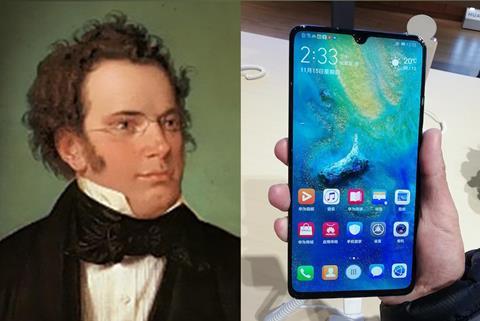The final product will be performed at Cadogan Hall in February

For the first time ever, Huawei, the Chinese telecoms giant, has used the power of AI to compose the final two movements of Schubert’s Symphony No. 8, the ‘Unfinished’, which has remained incomplete for 197 years.
Analysing the timbre, pitch and meter of the existing first and second movements of the symphony, Huawei’s AI model then generated the melody for the final, missing third and fourth movements.
The company then worked with Emmy award-winning composer, Lucas Cantor to arrange an orchestral score from the melody that stayed true to the style of Schubert’s Symphony No. 8.
‘At Huawei, we are always searching for ways in which technology can make the world a better place. So we taught our Mate 20 Pro smartphone to analyse an unfinished, nearly 200 year old piece of music and to finish it in the style of the original composer,’ commented Walter Ji, President CBG, Huawei Western Europe.
‘We used the power of AI, to extend the boundaries of what is humanly possible and see the positive role technology might have on modern culture. If our smartphone is intelligent enough to do this, what else could be possible?‘
The composer, Lucas Cantor, said: ‘My role was to draw out the AI’s good ideas and fill in the gaps to ensure the final output was ready to be played by a symphony orchestra. The result of this collaboration with AI proves that technology offers incredible possibilities and the significant and positive impact it can have on modern culture.’
The final, Huawei-completed piece will be brought to life with a live performance at London’s Cadogan Hall on Monday 4th February.











































No comments yet